
Mairead McGuinness predicted Britain's exit from the EU once then Prime Minister David Cameron opted for a referendum on the nation's membership.
CLICK HERE FOR PART ONE - 'The numbers that have died are just appalling' - Louth MEP Mairead McGuinness on Covid-19'
January 29, 2020. Brexit in a nutshell in Brussels. Boisterous Britain against the reasoning rest.
Nigel Farage, MEP: “You want to ban our national flags, but we’re going to wave you goodbye and we’ll look forward, in the future, to working with you as sovereign…”
Suddenly, amid a European Parliament sitting, the ardent, English Brexiteer was talking but couldn’t be heard. A human ventriloquist doll.
Mairead McGuinness, EU Parliament Vice-President: “If you disobey the rules, you get cut off. Could we please remove the flags. Mr Farage, could you remove the flags, please?”
Farage, beneath a rendition of claps: “That’s it, it’s finished.”
McGuinness: “Can I please ask for quiet.”
But the British delegation are heedless. “Hip, hip, hurray,” one exclaims as the others humm like bees around a honey pot, Farage looking altogether pleased with himself. McGuinness wearing a steely guise of discontent.
“I felt there was a great tension in the plannery and I thought that in order to keep the respect of the chamber that I could not allow Nigel Farage put on a circus because I’ve great respect for all parliaments; they’re not circuses,” McGuinness tells The Democrat of an incident which, like no other, has earned her widespread plaudits.
“I took the decision to take control of the situation and I got a very strong, positive reaction from Ireland and across the globe. I’d no idea that people were so engaged and appreciative of the fact that I did my job.
“To some extent, as was said elsewhere, he didn’t get the last word.”
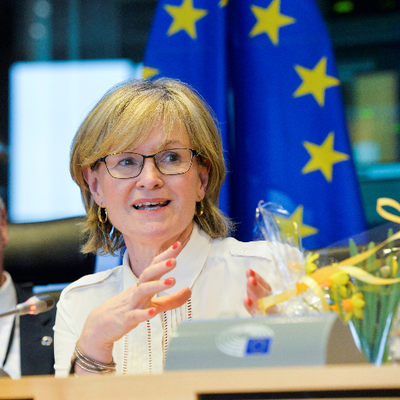
******
McGuinness expected nothing less than ensuing chaos when the United Kingdom’s then Prime Minister, David Cameron, announced his decision to hold a referendum on British membership of the EU. And her prophecy delivered its expected bedlam, leading to the fall of two Westminster governments and successive changes in the Conservative Party leadership.
Yet, almost four years later, a deal is yet to be done. Maybe it’s that Britain has realised its mistake in voting to leave, or that those charged with negotiating are, in fact, remainers? Or, could it be that the EU isn’t designed to allow members to leave, as is their democratic right?
The Ardonian rejects the latter, believing it to be the UK’s flippant view which has led to an ever-rumbling crisis which is deepening the divide between Britain and its European colleagues.
“The UK never looked at what it meant to leave the European Union,” the Fine Gael MEP added. “It was simplified down to almost opening a door and walking out, when it’s a bit like a marriage break-up, you can walk out the door, but you still leave a mess of a settlement to be cleared up - Who minds the kids? Who gets the cat? All of those difficult questions.
“I think that to simplify membership of the European Union, which historically arose because of our history of war on the continent, was a disrespectful view of what it is and why it was created. Europe is more than getting from, I think you’ve to contribute to.
“It’s of course voluntary and Ireland could leave if it wants, but where would we go? Hungary aren’t anxious to leave Europe, they may want to reshape it but they certainly want to stay in it because the single market confers huge benefits, as does free travel.
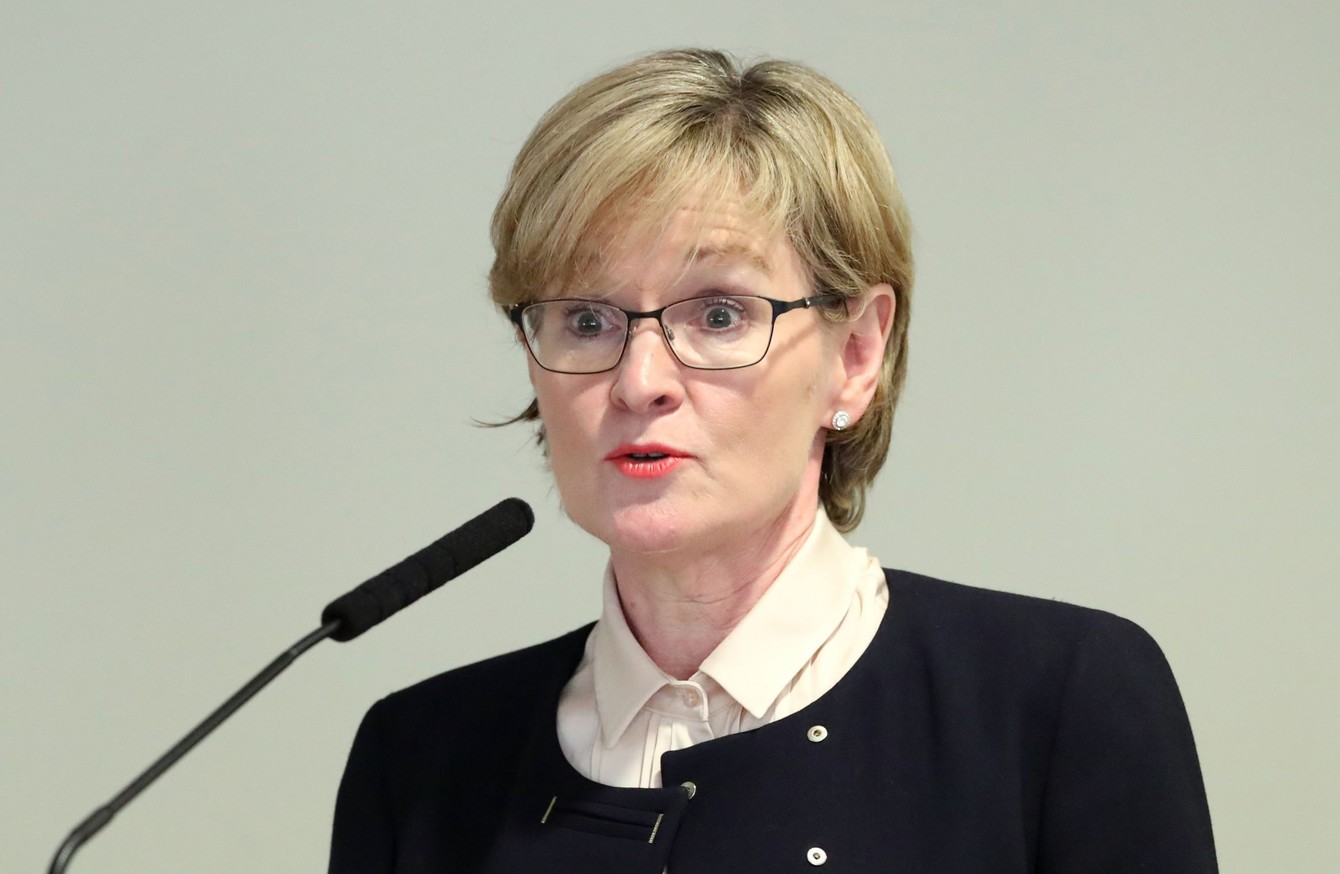
“I think we will have to start rethinking our relationships with each other in Europe and with Europe itself. Our upcoming conference on the future of Europe will be part of that.”
Withdrawal discussions are set to resume during the summer, though the effects of Covid-19 could well impact the rate at which they occur.
British leader Boris Johnson and the EU’s chief Brexit negotiator, Michel Barnier, are both recovering from bouts of coronavirus and so the resumption of talks could be kicked further down the road.
In the meantime, though, Britain has persisted in disassociating itself from the EU and its offerings. Badly-needed personal protective equipment (PPE) hasn’t even been availed of to the nation’s evident detriment.
“Constant negativity will break any system,” McGuinness says. “If you look at what happened in the United Kingdom, there never was a good story about the European Union for as long as I can recall, but there were many headlines making little of and disparaging the Union.
“Yet, if the UK regarded themselves as members today, they could have had access to the PPE that they so need.
“Politics is much more difficult in an era of instant news and an era of instant fake news. Twitter, Facebook and all those social media outlets, people are reading stuff there that has no legs or factual basis.”
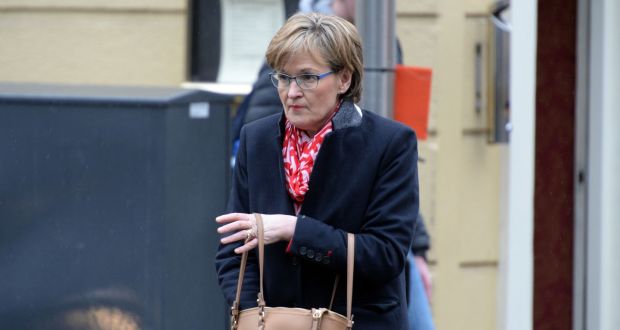
******
Nonetheless, in abiding by the foundational principles of the EU, respecting the individual rights of members is of the utmost importance to McGuinness, hence she is reluctantly adherent with the UK’s opting.
Though the monotonous parting, and all it’s entailed for both her and fellow MEPs, has been a political challenge like no other. She does, however, believe there has been a relative upside to the situation in that Ireland’s position within the Union is now better understood.
“The Brexit referendum was stressful and I didn’t think the UK would vote to remain - I’m sorry to have felt that way. But the campaign was so viciously anti-European that I think it really swung it in favour of the Brexiteers.
“The subsequent three years of negotiations, of bringing colleagues to the border between Dundalk and Newry, explaining our position, it was extraordinarily difficult, but also a privilege to be able to explain the sensitivities for Ireland and to get support for those.
“I have to accept their view - perhaps more that of England than the UK - that they’re better off on their own. They have a different history, different life experience and passionately believe that every problem in the United Kingdom arose because of the European Union - now they’re finding that that’s not the case.
“What I took issue with is the way in which they manipulated everything that Europe stood for in a negative way and how they would attack, without criticism in their own press, everything that Europe did.
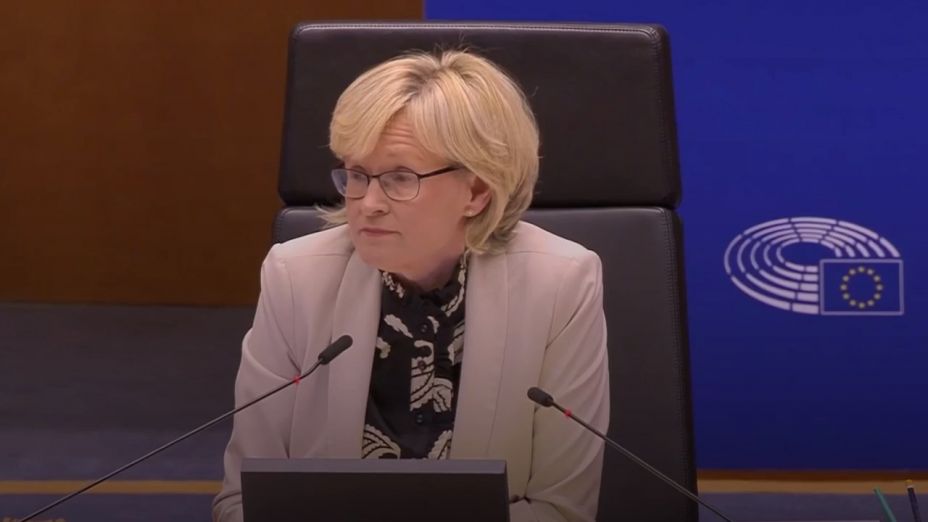
“These people did not work on committees or do the work of other politicians, they simply campaigned for Brexit and they won. Despite how I feel about that, they did manage to succeed.
“The problem surely is still with us, though. Negotiations are starting to enter full swing and they’re hoping to get the issues ironed out by June, but using this online technology and video conferencing, I think, makes that very difficult. There will need to be an understanding that deadlines are there to be reached for and not always achievable, as opposed to simply jumping off the cliff.”
Could the EU, over both its long-term and recent history, have done more to facilitate Britain, thus preventing such a precarious predicament?
“Britain has a focus that has always been more internal than external and this has happened over a period of time. There has always been a dynamic, even during Tony Blair’s days in Downing Street, where they wanted the EU curtailed.
“It led us to a situation where David Cameron called a referendum without any reflection on his timing and he felt he’d win it when he hadn’t a chance. There may have been occasions when Europe could have done more, but when you’ve a member state that’s always pulling against ‘more’ at European level, it was always going to be hard to placate them.”
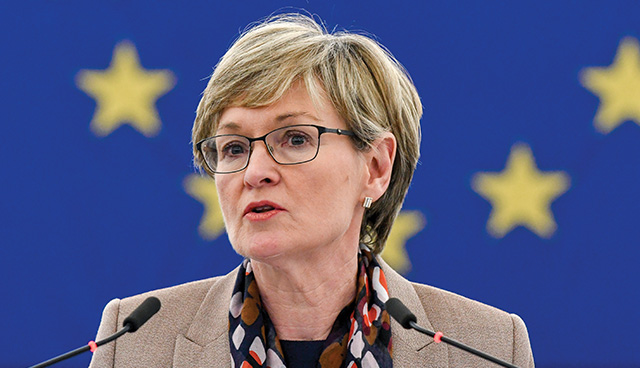
******
On the ongoing situation in Hungary, where Prime Minister Viktor Orban has effectively declared authoritarian control, McGuinness believes her comrades in the European People’s Party have stood firm in suspending his involvement.
Democracy, a recurrent and fluent aspect of the former journalist’s political outlook, is in question all over the world as people’s view of what it entails and how best to implement it sways.
Hungary isn’t exclusive in its shift towards a more extreme administration, leaderships which have created mass civil unrest through previous generations in various parts of Europe and the world.
It’s a source of concern for McGuinness, although she’s optimistic that the cross-border unity garnered from the current health crisis can be beneficial to society on a lengthier basis.
“Across the globe there has been the rise of the strong male, that leader that takes total control without due regard to others and other leaders,” she adds. “We have to be very careful of that.
“We’ve been very critical of the Hungarian Prime Minister at every stage of this process. But there are other governments, like Malta, where we’d be concerned over the freedom of the press; a journalist (Daphne Caruana Galizia 2017) was murdered there and there hasn’t been sufficient follow-up.
“I think there will always be concerns over particular governments, but the good thing is that these concerns get aired and the Commission is looking into the rule of law and its application.
“I think the wider issue around democracy is around trust and to some extent we have to acknowledge that trust in politics - and, sadly, in journalism sometimes too - has been eroded because of the economic collapse. We need to rebuild trust.
“If you look now at the crisis where science is guiding politics, I think that’s helped to restore trust.”
Subscribe or register today to discover more from DonegalLive.ie
Buy the e-paper of the Donegal Democrat, Donegal People's Press, Donegal Post and Inish Times here for instant access to Donegal's premier news titles.
Keep up with the latest news from Donegal with our daily newsletter featuring the most important stories of the day delivered to your inbox every evening at 5pm.